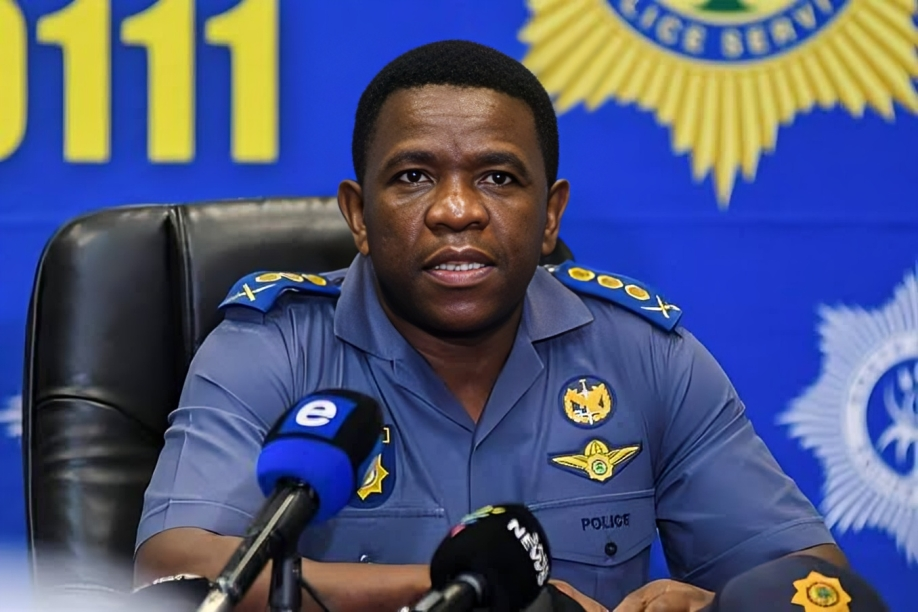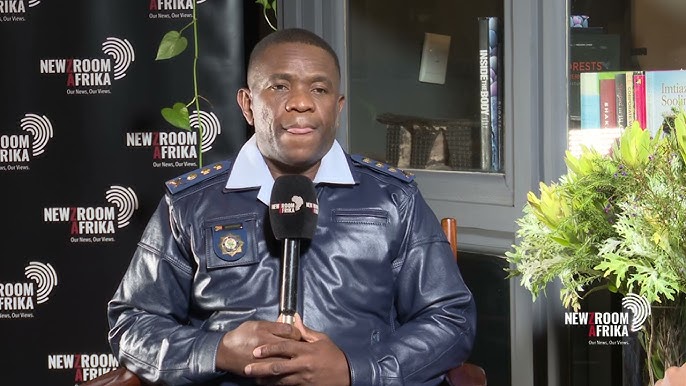
Lieutenant-General Nhlanhla Sibusiso “Lucky” Mkhwanazi
Born on 5 February 1973 in Edendale, a township just outside Pietermaritzburg in KwaZulu-Natal, South Africa, Nhlanhla Sibusiso Mkhwanazi—often called “Lucky”—has for more than three decades been a prominent figure in the South African Police Service (SAPS). (1
Early Life & Education
Raised in KwaZulu-Natal during a period of great social and political change, Mkhwanazi joined the SAPS in 1993 as a student constable, aged about 20, shortly before the first democratic elections in South Africa. (2)
Over the course of his career, he has invested in formal education and specialized training. His qualifications include a National Diploma in Police Administration, a B-Tech degree in Policing, and a Bachelor of Arts (BA) in Policing. He has also earned certificates in counterterrorism supervision (from the USA), bomb disposal (in South Africa), and crisis response training abroad. (3)
Policing Career
From his early years in Public Order Policing, Mkhwanazi rose steadily through the police ranks. (3) He has held a variety of leadership positions, notably:
- Head of the Special Task Force (STF) — This is SAPS’s elite tactical unit, responsible for high-risk operations. Under his leadership, it oversaw specialized units including the National Air Wing, National Intervention Unit, and training for Special Task Force operations. (3)
- Divisional Commissioner, Human Resource Development — In this role he had oversight over aspects of training, staff development, and welfare. (4)
- Acting National Police Commissioner — In October 2011, Mkhwanazi was appointed as acting National Commissioner of SAPS after the suspension of Bheki Cele. This was during a sensitive time. That appointment also coincided with his promotion to the rank of Lieutenant-General.
- Provincial Commissioner, KwaZulu-Natal — Since December 2018, he has served as the Provincial Commissioner for KwaZulu-Natal, one of South Africa’s most populous and crime-afflicted provinces.
Leadership Style & Public Profile

Mkhwanazi has developed a reputation for being tough, visible, and relatively outspoken for someone in his position. He is known for emphasizing discipline within the police, for insisting on accountability, and for demanding that officers obey expected standards of conduct. For example, he criticized police members using State vehicles to do personal errands while in uniform. (3)
He has also become a public figure largely because of his willingness to speak about institutional corruption and political interference in policing. In July 2025, he made serious allegations against the Minister of Police (Senzo Mchunu) and the Deputy National Commissioner (Shadrack Sibiya), accusing them of disbanding the “Political Killings Task Team” in KwaZulu-Natal to shield politicians and other senior figures. He claimed case files were removed and investigations suppressed. (5)
With these actions, he has been described by some observers as a whistleblower. His July 2025 press briefing, during which he wore his Special Task Force uniform and was flanked by armed personnel, drew strong public attention. He declared he was “combat ready” and said, “I will die for this badge,” signaling how seriously he takes his role and the moral dimensions he sees in it. (4)
Challenges & Controversies
Mkhwanazi’s confrontational stance has not come without risk or detractors. Political figures he has accused deny wrongdoing and question the propriety of making certain claims in public. Some critics argue that whistleblowing through media briefings, rather than exclusively through internal processes, could fuel institutional tension.
He has also been subject to internal allegations. For example, there was a politically-charged complaint lodged with the Independent Police Investigative Directorate (IPID), alleging he shielded a drug-dealing prison official. That accusation was later formally withdrawn amid claims it was unfounded and politically motivated. The Public Servants Association (PSA) welcomed his “vindication” in that matter.
Personal Life & Values
Little is publicly confirmed about his personal life beyond a few mentions: he is married (some sources name his spouse as Esethu Mkhwanazi) and is the father of two to four children (different sources vary). He is known among colleagues and the public as principled, with a strong sense of duty and willingness to take personal risk rather than compromise on issues he considers fundamental to policing integrity. His willingness to call out power, even from within the government, has boosted his visibility and turned him into a focal point for discussions about police reform, justice, corruption, and accountability in South Africa. (6)
Legacy & Significance
As of late 2025, Lieutenant-General Mkhwanazi is seen as both a respected senior leader in the SAPS and a controversial one. His tenure in KwaZulu-Natal has been marked by both victories (notably arrests in high profile crimes, increased visibility of the police in crime-hotspots, and public support) and serious institutional friction. He is part of a broader conversation in South Africa about police effectiveness, corruption, political interference, and the rule of law.
His most recent role as the first witness before the Madlanga Commission of Inquiry (set up in July 2025) positions him at the center of ongoing debates about whether parts of the criminal justice system have been captured, how political influence might be undermining investigations, and what reform will be necessary. (7)
If his claims are substantiated, they could have major implications for how SAPS operates, how oversight is applied, and how much political accountability exists for crime and corruption in South Africa. Even independent of those outcomes, his public standing seems bolstered among many citizens who see his actions as courageous.





